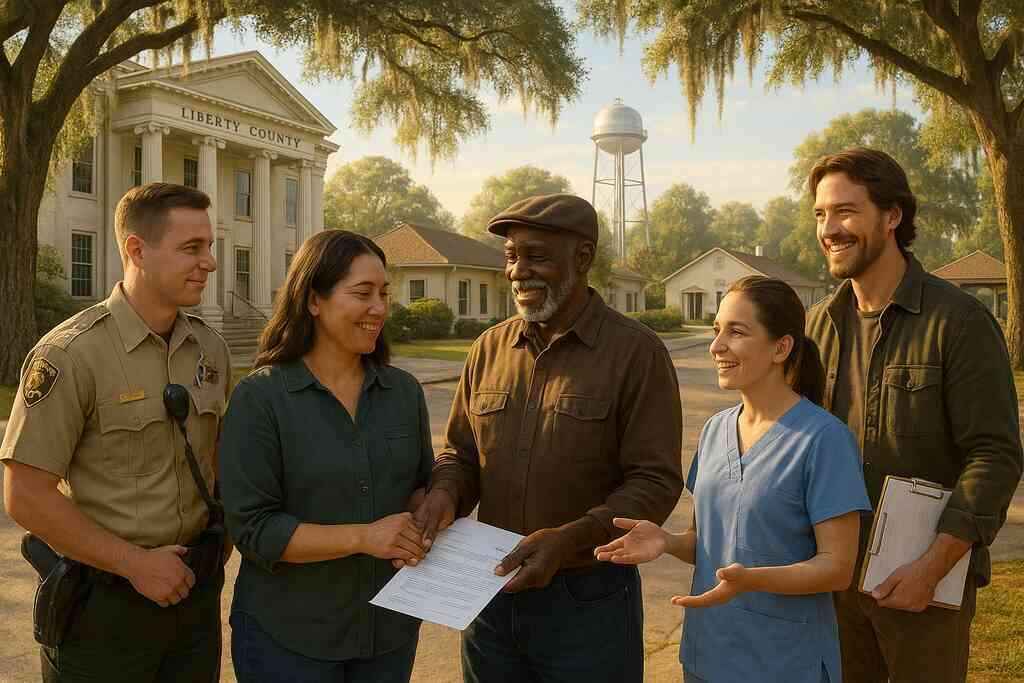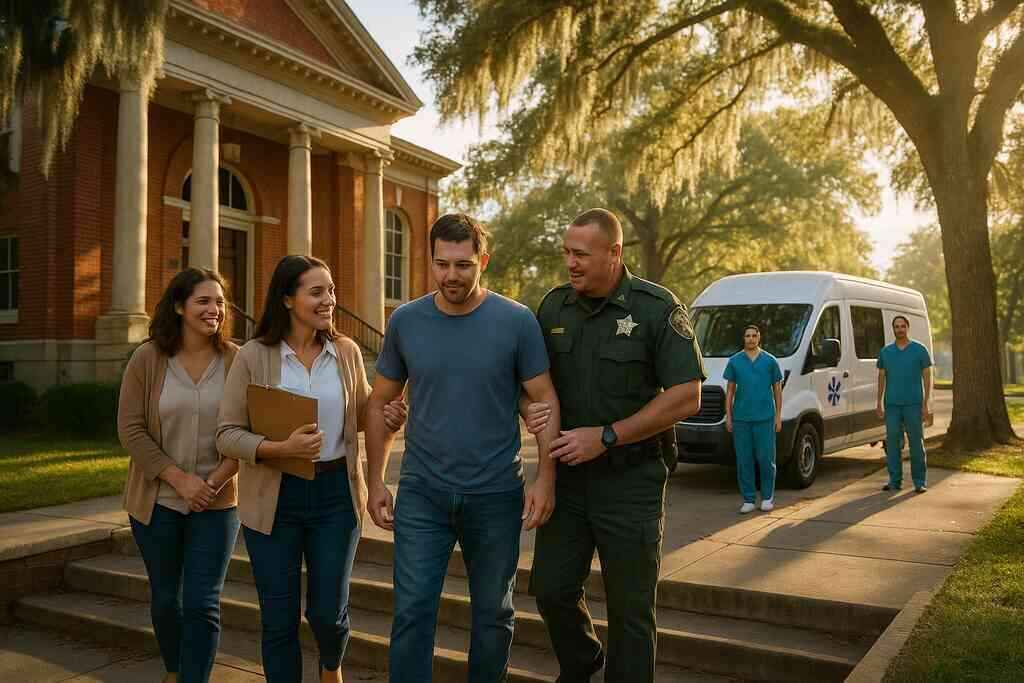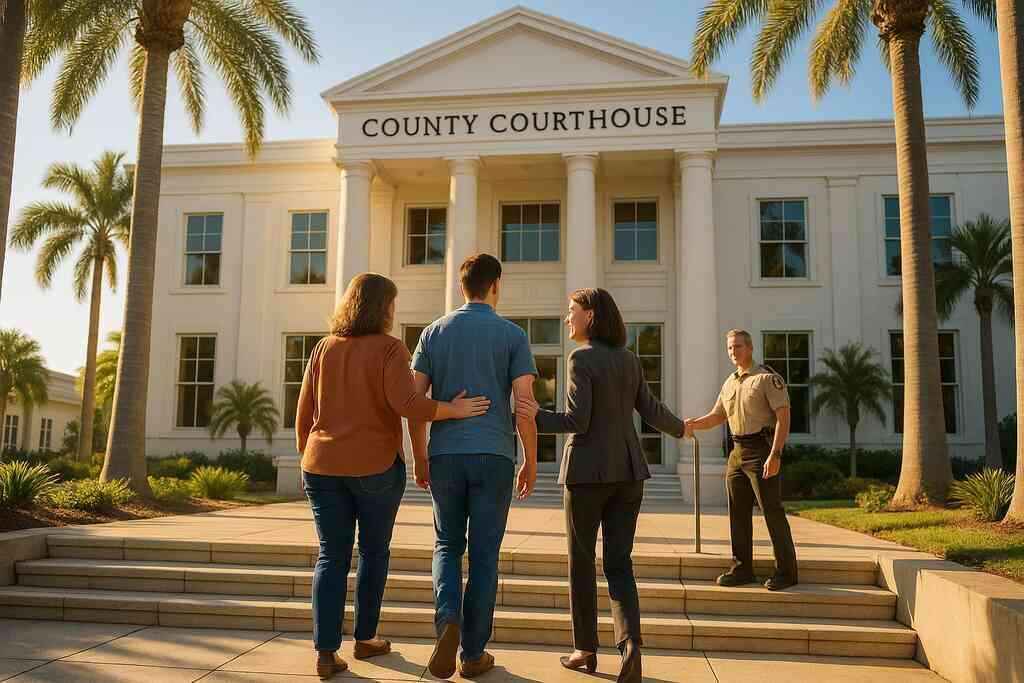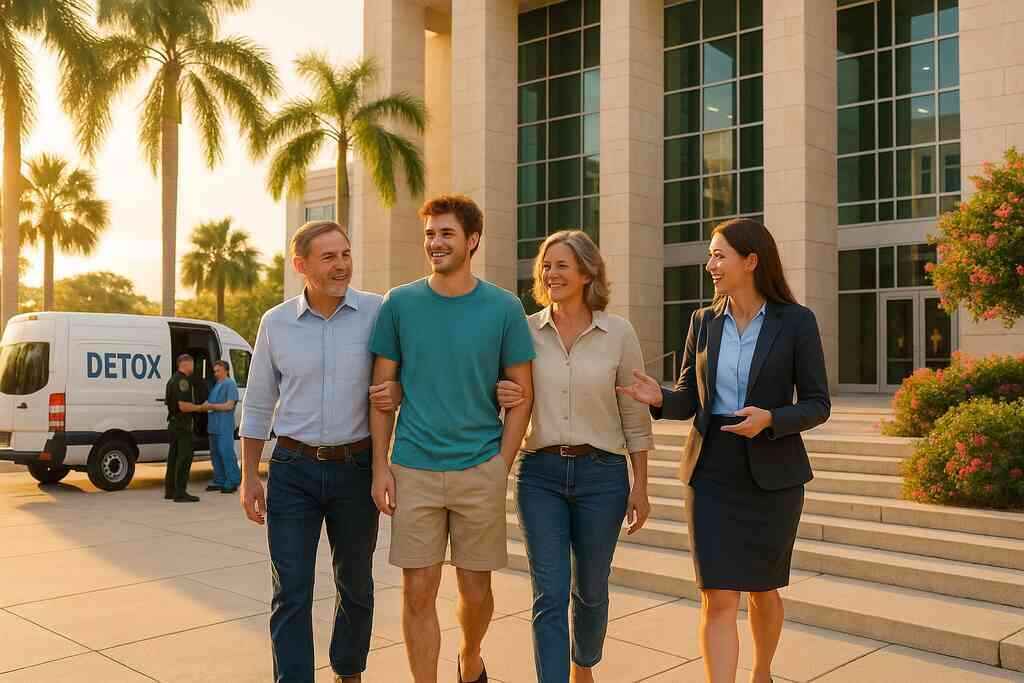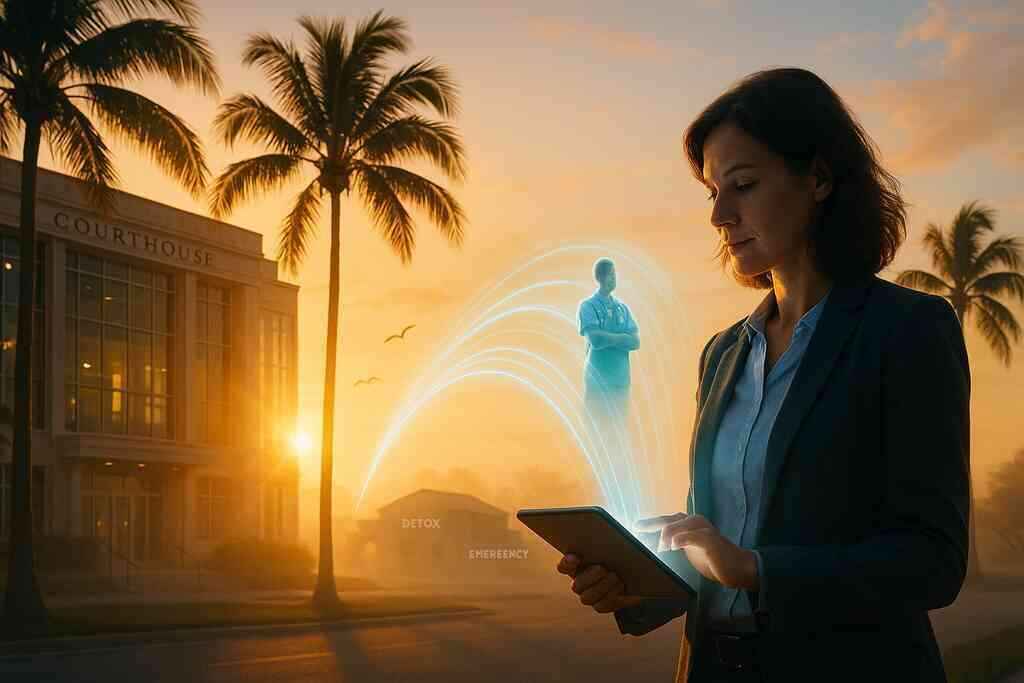Opening the Orange County Pathway to Compassionate Court Guided Recovery
Why Marchman Act Counseling Differs from Baker Act Paths
Orange County families often confuse marchman act counseling with mental-health statutes, yet the two statutes serve distinct crises. The Marchman Act focuses on substance use disorders, delivering Orange County addiction intervention that honors personal dignity while ensuring safety. Under this law, loved ones can petition for court-mandated care when voluntary help fails, offering a compassionate bridge rather than punishment. By contrast, the Baker Act addresses imminent psychiatric danger, making involuntary treatment versus baker act distinctions critical for informed decisions. For caregivers seeking localized direction, our team provides Marchman Act support in Orange County – .
Marchman pathways also incorporate educational sessions that prepare families for sustained advocacy, unlike crisis-driven Baker mandates that often end abruptly. Counselors teach relatives how to document relapse patterns, highlight substance-induced psychosis, and request extended stabilization. This proactive stance reduces revolving-door admissions and preserves court resources. Meanwhile, Baker interventions generally terminate once immediate psychiatric risk subsides, which can leave substance triggers unaddressed. A clear understanding of each statute protects civil liberties while promoting targeted recovery.
Florida Civil Procedures That Empower Families Seeking Involuntary Care
Florida civil procedures for involuntary treatment prioritize transparency, giving petitioners step-by-step instructions for filing a marchman act petition. In Orange County, clerks provide standardized forms, but persuasive narratives often demand legal guidance for Florida marchman act cases. Petitioners must illustrate recent impairment, failed voluntary efforts, and likelihood of harm without court action. Judges then weigh sworn affidavits against constitutional safeguards, emphasizing the least restrictive alternative. Throughout, families remain active stakeholders, not passive observers.
Because these cases proceed within the Florida court system’s civil division, strict timelines govern hearings, service of process, and evaluation orders. Skilled advocates analyze Florida civil lawsuits precedent to prevent procedural dismissal. They coordinate subpoenas for treatment records, arrange transportation warrants, and verify facility availability before detention authority is granted. Our practitioners streamline such logistics, ensuring loved ones never languish in limbo awaiting care. This meticulous orchestration underpins successful outcomes while upholding due-process rights.
Recognizing Substance Withdrawal Emergencies in Central Florida
Timely recognition of signs of substance withdrawal emergencies can mean the difference between life and tragedy. Severe alcohol tremors, benzodiazepine seizures, and fentanyl-related respiratory distress require immediate medical stabilization before any legal filing. Families should monitor sudden agitation, hallucinations, or flu-like opioid symptoms that escalate rapidly. Documenting each episode bolsters court evidence and guides clinicians toward appropriate detox levels of care. Early action reduces complications and supports safer transitions into treatment.
Educational workshops distribute laminated checklists detailing delirium tremens, serotonin syndrome, and stimulant psychosis. Trusted online references such as Recognizing drug withdrawal symptoms deepen caregiver competency – . When loved ones exhibit these red-flag indicators, calling emergency services and alerting a substance abuse evaluator near you becomes paramount. Medical professionals can administer buprenorphine, benzodiazepines, or IV fluids, preventing deterioration during legal processing. Integrating medical insight with legal strategy accelerates protective custody and safeguards health.
How Therapeutic Jurisprudence Shapes Court Ordered Rehab in Orlando
Therapeutic jurisprudence views courts as healing agents, framing court ordered rehab in Orlando as more than punishment. Judges collaborate with clinicians, fostering environments where accountability aligns with empathy. Docket reviews assess treatment milestones, motivational interviewing progress, and family support under the marchman act. This synergy promotes sustained engagement, reducing recidivism and reinforcing public confidence in compassionate justice. When setbacks occur, the bench may adjust intensity rather than impose punitive sanctions.
Orange County jurists also study Florida supreme court opinions that champion evidence-based interventions. They reference national research on medication-assisted treatment, cognitive behavioral therapy, and peer mentoring to refine orders. Ongoing training ensures magistrates incorporate cultural responsiveness and trauma-informed practices into rulings. Community partners share data, illustrating how therapeutic jurisprudence saves taxpayer dollars through lower emergency-room expenditures. Ultimately, this legal philosophy transforms courtrooms into catalysts for lasting recovery.
From Petition to Sober Living Mapping the Marchman Act Journey
Preparing and Filing a Marchman Act Petition with the Orange County Clerk
Guiding a loved one toward marchman act counseling starts with precise paperwork at the Orange County Clerk’s office. Families gather documented relapse records, emergency room notes, and witness statements before filing a marchman act petition. This evidence shows the court why voluntary attempts failed and why immediate safety is at risk. As a primer, our guide on Legal navigation under the Marchman Act outlines critical timelines and signature requirements. Leveraging such direction helps petitioners avoid clerical errors that could delay lifesaving treatment.
After the petition is submitted, Florida civil procedures for involuntary treatment move quickly. A judge reviews sworn affidavits, then sets a hearing within days to assess probable cause. Families must arrive prepared to explain substance-induced impairment, citing recent overdoses or violent episodes. Coordinating testimony with an experienced substance abuse evaluator near you strengthens credibility. This proactive strategy increases the likelihood of immediate custody orders and compassionate stabilization.
Emergency Stabilization Services and Intensive Outpatient Programs Near You
Once a court issues an emergency custody warrant, Orange County addiction intervention teams coordinate safe transport. Medical staff triage signs of withdrawal, addressing alcohol tremors, fentanyl cravings, or benzodiazepine seizures on arrival. Round-the-clock nurses administer detox protocols, preventing complications like delirium tremens. Because stabilizing physiology builds trust, clients enter treatment more receptive to counseling. Loved ones receive frequent updates, reducing anxiety during those crucial first days.
Following detox, clinicians often recommend intensive outpatient programs near me for sustained therapy. These programs blend evidence-based modalities with flexible scheduling, allowing clients to rebuild routines without losing accountability. Group sessions reinforce coping skills, while individual counseling confronts trauma fueling addiction. When necessary, psychiatric providers adjust medication regimes for co-occurring disorders. This continuum honors the court’s intent by promoting recovery, not merely containment.
Substance Abuse Evaluation and Harm Reduction for Co Occurring Disorders
Thorough substance abuse evaluation guides appropriate placement within the Florida court system. Licensed clinicians perform biopsychosocial assessments, screening for depression, anxiety, or bipolar disorder alongside chemical dependence. Accurate diagnosis prevents missteps where untreated mental health symptoms sabotage sobriety. Evaluators then craft individualized harm reduction strategies, including medication-assisted treatment when opioid use dominates. Judges weigh these findings before finalizing treatment conditions.
Harm reduction extends beyond pharmacology. Counselors teach safer-use education to clients unwilling to stop immediately, maintaining engagement until readiness grows. Needle exchange referrals and overdose reversal kits offer real-time protection, meeting people where they are. Families learn to recognize signs of substance withdrawal emergencies and respond without shame. This balanced approach respects autonomy while steadily guiding individuals toward abstinence.
Peer and Family Support Networks for Relapse Prevention Counseling Florida
Relapse prevention counseling Florida emphasizes community to sustain gains earned in court ordered rehab. Certified peer specialists, many in long-term recovery, mentor newcomers through daily challenges. They model honesty, accountability, and practical problem-solving, filling gaps between clinical sessions. Weekly check-ins track triggers like unemployment or relationship stress, allowing early intervention. Data shows peer alliances dramatically reduce readmission rates.
Families remain critical pillars within Orange County’s continuum. Educational workshops explain brain changes caused by chronic substance exposure, replacing frustration with understanding. Relatives practice boundary setting and motivational interviewing, supporting change without enabling. They also attend open AA meetings close to Winter Park or virtual forums when schedules clash. Unified support systems anchor clients, making relapse less attractive and recovery more rewarding.
Bilingual Addiction Intervention Resources Serving Greater Orlando
Central Florida’s vibrant diversity demands culturally responsive services. Bilingual clinicians offer marchman act counseling in Spanish, Haitian Creole, and Portuguese, ensuring nothing is lost in translation. Clear communication builds trust, especially during emotionally charged legal proceedings. Interpreters accompany families during hearings, fostering confident participation and informed consent. This inclusivity upholds constitutional rights while improving clinical outcomes.
Outreach teams partner with faith leaders, neighborhood centers, and ethnic media to spread awareness of compassionate involuntary care solutions. Flyers highlight free screenings, signs of co-occurring disorder distress, and hotline numbers. When language barriers fall, more residents leverage Florida civil lawsuits designed for protection, not punishment. The result is stronger public health and fewer emergency room crises across Greater Orlando.

Sustaining Recovery Beyond the Court Decision
Seamless Placement into Top Sober House Options like RECO Institute
Families often breathe easier once court ordered rehab in Orlando ends, yet safe housing remains vital. Our counselors arrange treatment placement after marchman act rulings, matching clients with sober living options in Orange County that reinforce new habits. Because many residents thrive in small, structured environments, we review amenities, curfews, and peer culture before recommending a top sober house. Options resembling RECO Institute emphasize accountability without sacrificing dignity, helping graduates practice independence while staying connected to clinical supports. This proactive housing plan prevents the chaos that often fuels early relapse.
When judges approve releases, transportation teams move quickly, ensuring no gap exists between discharge and residence entry. Staff help clients unpack, schedule therapy, and sign community agreements within hours. Random testing, house meetings, and chore rotations create predictable routines that mirror healthy family systems. Meanwhile, alumni mentors visit weekly, modeling long-term recovery beyond formal supervision. These layered supports extend the therapeutic jurisprudence philosophy into everyday life.
Aftercare Coordination and Long Term Case Management Strategies
A successful Marchman Act journey does not end when the gavel falls; it evolves into sustained addiction case management in Orange County. Our planners draft six-month calendars that integrate counseling, medication checks, employment coaching, and relapse prevention counseling Florida residents can access easily. Because triggers shift with time, case managers adjust frequency, introduce trauma-informed yoga, or recommend vocational classes, maintaining momentum. Regular progress summaries keep the Florida court system informed, demonstrating accountability while respecting client autonomy. This collaborative transparency nurtures trust among families, providers, and judicial officers.
Long term coordination also includes insurance navigation and scholarship searches to remove financial barriers. We liaise with probation, employers, and faith communities, ensuring each stakeholder reinforces recovery goals. Digital reminders prompt medication compliance, while secure portals let caregivers upload mood logs or cravings reports. Data analytics highlight patterns, allowing early course corrections that avert crisis admissions. Over months, this steady guidance converts fragile sobriety into confident, self-directed wellness.
AA Meetings Close to Winter Park and NA Meetings Near Downtown Orlando
Peer fellowship remains a cornerstone of relapse prevention, so we map support groups by zip code, schedule, and culture. Individuals exploring twelve-step options can consult the Local AA meetings directory to locate gatherings close to Winter Park parks, churches, or community centers. For stimulant or opioid users, NA meetings near Downtown Orlando provide relatable stories and service opportunities that strengthen commitment. Beginners receive newcomer packets explaining sponsorship, step work, and meeting etiquette, reducing anxiety about participation. Continual attendance builds sober networks that outlast formal treatment.
We coach families to respect anonymity while still encouraging attendance, perhaps driving loved ones to early sessions until confidence grows. Alumni panels visit sober houses to share how consistent meeting work complements cognitive-behavioral therapy and mindfulness practice. Court reports may credit verified participation, signaling serious engagement to judges overseeing compliance. Over time, members assume leadership roles, which boosts self-esteem and community belonging. These grassroots connections anchor clients whenever professional services scale back.
Measuring Outcomes and Advocating Future Friendly Florida Supreme Court Guidance
Effective programs gather evidence, not anecdotes, to prove impact within the wider Florida state context. We track metrics like emergency-room visits avoided, employment gains, and negative toxicology screens, then compare them to statewide dashboards. Positive trends support petitions for grant funding and inspire judges to champion therapeutic jurisprudence across Florida district courts. Researchers compile white papers that outline how marchman act counseling reduces public costs while uplifting families. Such data empowers policymakers to refine statutes without sacrificing civil liberties.
Stakeholders then present findings during judicial conferences, encouraging future friendly Florida Supreme Court guidance that promotes evidence-based flexibility. Advocates propose streamlined filing formats, remote hearing options, and extended monitoring windows, aligning law with modern clinical realities. Collaboration with academic partners elevates credibility, while client testimonials add human resonance to statistical charts. Together, these voices safeguard and strengthen the Marchman Act legal statute for the next generation. Continuous improvement ensures that every Orange County resident receives compassionate, accountable care when addiction threatens life and liberty.
 Frequently Asked Questions
Frequently Asked Questions
Question: What is the difference between filing a Marchman Act petition and using the Baker Act when my loved one needs help in Orange County?
Answer: The Marchman Act focuses specifically on substance use disorders, allowing families to petition the Florida court system for court-ordered rehab in Orlando or any county statewide when voluntary efforts have failed. The statute requires proof of impaired judgment, recent substance-related harm, and the likelihood of future danger if treatment is not mandated. By contrast, the Baker Act addresses acute psychiatric crises that pose an imminent threat of self-harm or harm to others. Marchman Act Addiction Treatment guides you through Florida civil procedures for involuntary treatment, helps you assemble sworn affidavids, and connects you with an experienced substance abuse evaluator near you so the right statute is used-and civil liberties remain protected.
Question: How will Marchman Act Addiction Treatment support my family during emergency stabilization and intensive outpatient programs near me?
Answer: Once the judge signs an emergency custody order, our Orange County addiction intervention team arranges safe transport and rapid medical triage for alcohol tremors, fentanyl cravings, or benzodiazepine seizures. Licensed clinicians manage detox 24/7, then transition the client into evidence-based intensive outpatient programs near you that blend cognitive behavioral therapy, medication-assisted treatment, and family support under the Marchman Act. Throughout the process, we provide real-time updates, bilingual addiction services Orlando residents trust, and harm reduction strategies for families so everyone feels informed and confident.
Question: In “What Marchman Act Counseling Means for Orange County’s Clients,” you highlight therapeutic jurisprudence-how does that shape court-ordered rehab in Orlando?
Answer: Therapeutic jurisprudence views the courtroom as a healing environment rather than a punitive arena. Our legal team collaborates with judges who track treatment milestones, adjust care plans instead of issuing sanctions, and reference Florida Supreme Court guidance supporting medication-assisted treatment and peer support networks in Central Florida. This philosophy keeps the focus on recovery, reduces recidivism, and reinforces public confidence in compassionate involuntary care solutions.
Question: What signs of substance withdrawal emergencies should we document before approaching the Orange County Clerk to file a Marchman Act petition?
Answer: Take note of severe alcohol tremors, hallucinations, agitation, seizures, or opioid flu-like symptoms that escalate quickly. Document emergency-room visits, violent incidents, or overdose reversals with naloxone. Photograph empty pill bottles, record timestamps of erratic behavior, and collect witness statements. These details strengthen your filing, demonstrate the need for emergency stabilization services Florida providers offer, and help the court issue timely custody orders.
Question: After the court approves treatment, how do you coordinate placement into sober living options in Orange County so my loved one doesn’t relapse?
Answer: Our case managers arrange treatment placement after Marchman Act rulings with top sober house programs similar to RECO Institute. We vet curfews, peer culture, and transportation access, then move clients directly from detox or residential care to the chosen home-eliminating gaps that often trigger relapse. Ongoing addiction case management Orange County families rely on includes weekly check-ins, relapse prevention counseling Florida sessions, and mapping AA meetings close to Winter Park or NA meetings near Downtown Orlando. This seamless continuum supports long-term stability and peace of mind for everyone involved.


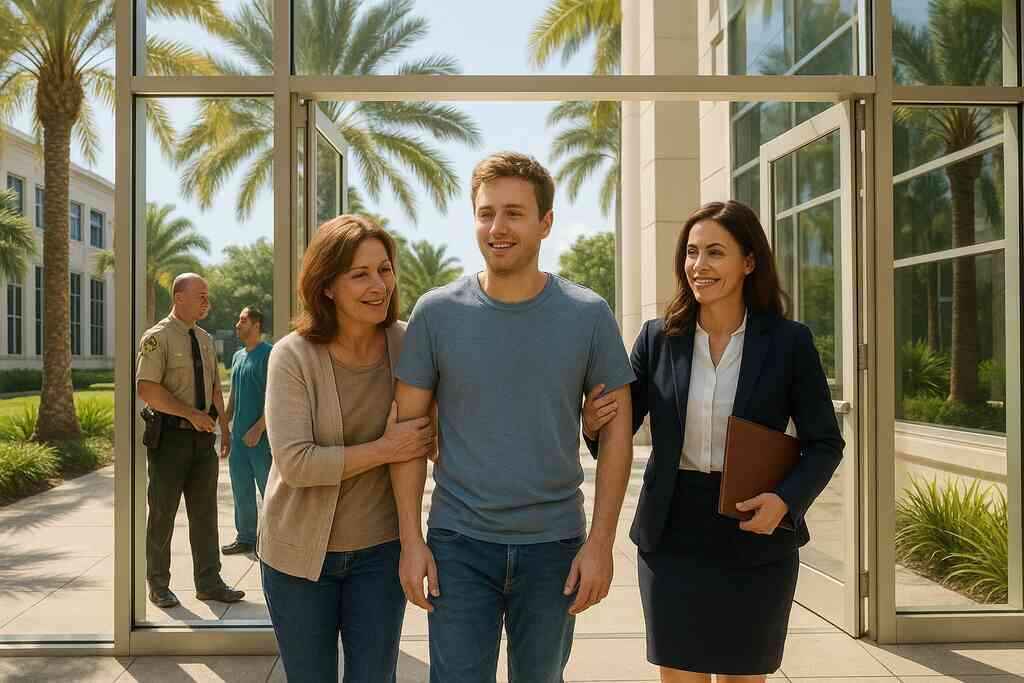 Frequently Asked Questions
Frequently Asked Questions
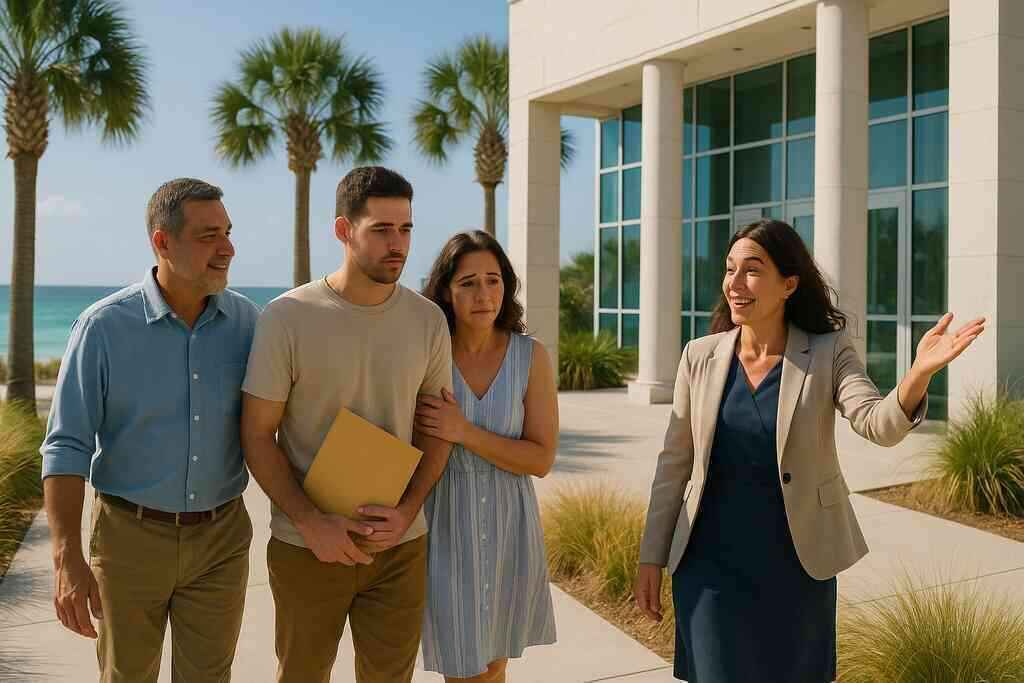



 Frequently Asked Questions
Frequently Asked Questions









